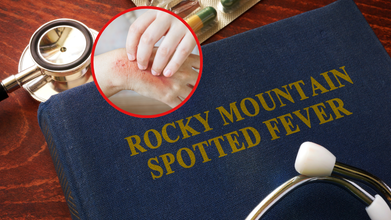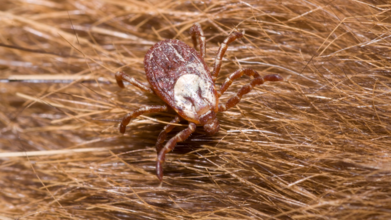- Health Conditions A-Z
- Health & Wellness
- Nutrition
- Fitness
- Health News
- Ayurveda
- Videos
- Medicine A-Z
- Parenting
- Web Stories
Rising Teen Mental Health Crisis in US Expected to Strain Economy

Teen Mental Health Crisis in U.S. (Credit-Canva)
Mental health is an ever-evolving field that needs to be handled with utmost care. While many people like to claim that mental healthcare is a waste of money and people can deal with stress and anxiety on their own, they have a lack of understanding on the matter. Many research and medical journals show how mental health has a huge effect on a person’s well-being, their social lives as well as their workspace. With how competitive the current market has become, you need to do well both mentally as well as physically to survive, no matter what industry you are in. And a recent study has raised some valid concerns regarding teen mental health and the future economy.
Teen mental health is said to be one of the most fragile and difficult to assess. While these kids are going through mental difficulties, they are also going through major transformative years of their lives. They are almost like half-baked human beings, who have a good grasp on things, yet cannot be treated like adults as they lack that maturity and understanding. But why has this become a big concern?
Teen Mental Health Impacts the U.S. Economy
According to a study published in PLOS Medicine when teenagers are stressed, anxious, or depressed, it affects their ability to get jobs and earn money later in life. This isn't just a personal problem, but it also affects how much money the country has overall. The study shows a clear connection between teen mental health and the economic well-being of the United States. This means that helping teens feel better mentally could also help the economy.
Researchers looked at data from over 3,300 people. They checked how these people were doing mentally when they were teenagers which is between the ages of or around 15 and 17 years old and then looked at their job situations ten years later. They found that if someone had serious anxiety or depression as a teen, they were less likely to have a job as a young adult. About 6% fewer of these young adults had jobs compared to those who didn't struggle with their mental health as teens. Also, those who were stressed as teenagers earned about $5,700 less per year when they were young adults. This means that teen mental health can affect someone's income for years to come.
Economic Benefits of Mental Health Support
The researchers wanted to see what would happen if we helped more teenagers with their mental health. They estimated that if just 10% of teenagers who are at risk of stress received help, it could save the U.S. government $52 billion over 10 years. This is because if these teens get help, they are more likely to get jobs and earn more money, which means they pay more taxes. This shows that spending money on teen mental health could actually save the country money in the long run. It's like an investment that pays off.
This study shows the fragile mental state of teens and why they should be taken more seriously. While there was a rise in people educating and taking mental health seriously, almost like the pendulum effect, the effect is going backwards with people believing that there has been a major misuse of mental health sensitivity by people. The lose use of terms like depression, OCD or anxiety has taken away from people who have this diagnosed issue. So, we as a society have to make an effort and bring these issues back to spotlight to make sure that the future of our countries does not suffer.
Canada Reports First Tick-Borne Rocky Mountain Spotted Fever, How To Spot The First Symptoms

(Credit - Canva)
Quebec has reported a case of Rocky Mountain spotted fever, a potentially deadly tick-borne disease. Reports suggest that the fever was likely acquired in Ontario or Quebec, as this disease was reported in Ontario earlier this year.
Here is what you need to know about the disease, how fatal it is, risk factors and symptoms you should look out for.
What Is Rocky Mountain Spotted Fever (RMSF)?
According to the Centers of Disease Control and Prevention, RMSF is a serious illness caused by bacteria and spread through the bite of an infected tick. It can be deadly if not treated early.

How To Spot The First Symptom of RMSF?
The first signs of RMSF can be vague and feel like other illnesses, including fever, headache, and muscle pain. The illness can get worse very quickly. A rash is a common symptom, but it often appears 2 to 4 days after the fever starts, which can make it hard to diagnose early. The rash can look like red splotches or tiny dots.
If you get sick after being bitten by a tick or spending time in a wooded or brushy area, you should see a doctor right away.
What Are The Long-Term Effects of RMSF?
RMSF is a serious disease that does not become a long-term, chronic infection. However, a severe case can lead to permanent damage, such as hearing loss, mental disability, or even the loss of limbs due to blood vessel damage.
There is no vaccine for RMSF. The best way to protect yourself is to prevent tick bites on yourself, your pets, and in your yard. Ticks are most active from April to September, but you can be exposed to them year-round.
Because RMSF can be so dangerous, CDC explains that doctors often start treatment with an antibiotic called doxycycline as soon as they suspect the illness, even before lab test results are back. This is because test results can take weeks to return. Doxycycline is an approved treatment for people of all ages and is crucial for preventing severe illness and death. However, please make sure you get yourself checked out before you take any medication.
Dougie Imrie Announces Death Of 20-Day Old Baby Daughter Born 14 Weeks Premature: What Are The Risks Of A Preterm Baby?

Morton manager Dougie Imrie announced the death of his baby daughter, who was born 14 weeks premature and weighed 1ib and 4 ounces. His daughter, Remi was 20 day old when she left the world. Remi was also put in neonatal intensive care unite at Wishaw Hospital and on Wednesday the announcement of her passing away was made.
He made the announcement on X, formerly Twitter, and wrote: "Our girl got tired in the early hours of Tuesday morning & decided it was time to rest 'If love could have saved you, you would have lived forever'.
He also wrote: "20 days of loving you, Remi, I hope you know how much you were loved, and we will cherish the short time we got to spend with you, a true wee fighter from the minute you were born."

The Greenrock Morton Football Club also paid tribute, calling it a "profound loss". The club wrote: "The Greenrock Morton Football Club family are devastated to learn of the tragic passing of Remi Imrie. The heartfelt condolences of all associated with the club go to Dougie Imrie, his partner Lauren and the full family at this extremely sad time. Greenock Morton at this time requests the privacy of the family as they try to come to terms with this profound loss, and we will continue to provide our full support."
Are Premature Babies Prone To Risks?
When a baby is born before 37 weeks of pregnancy, it is called preterm or a premature birth. The earlier the birth, the more serious the health risks to the baby. In most cases, preterm babies require special care in a NICU.
Some of the most common health conditions that can affect a premature baby are:
- Anemia, or not having enough healthy red blood cells
- Apnea of prematurity or temporary pauses in breathing
- Bronchopulmonary dysplasia, respiratory distress syndrome or underdeveloped lungs
- Intraventricular hemorrhage, or bleeding in their brains
- Newborn jaundice or hyperbilirubinemia, which means there are high levels of bilirubin in their blood.
- Necrotizing enterocolitis, or inflammation of their intestines
- Neonatal sepsis, or blood infection
- Patent ductus arteriosus (PDA), or abnormal blood flow in their hearts
- Retinopathy of prematurity, or underdeveloped blood vessels in their eyes
ALSO READ: Your Baby’s First 28 Days Are Critical, 5 Neonatal Health Problems Parents Can’t Afford To Miss
Premature babies are also at a higher risk of developmental challenges during childhood, which includes:
- Cerebral palsy
- Hearing and vision problems
- Learning disabilities
- Poor growth
- Problems with communication or social development
Some other risks that lure upon the mother who delivers a preterm baby are:
- Anxiety
- Postpartum depression
- Post-traumatic stress disorder (PTSD)
- Problems bonding with their baby
"Premature babies are born with most of their organs, but their organs are not mature enough to function," notes Dr Avneet Kaur, neonatologist and Pediatrician at the Apollo Cradle Hospital. "So we have to give them that much maturity till they reach that level of maturity themselves and maintain all those organ functions," she explains.
While the premature babies are in NICU, they are kept in incubators, explains the doctor. The babies are also given infusion drips so enough nutrition also reaches their bodies. The infusion drip is used to allow essential nutrients like protein, carbohydrates, etc., which a baby who is not born preterm would not need. "Preterm babies are functionally fragile, so we have to support them in every manner," she says.
Frank Caprio, 'Nicest Judge In The World' Dies At 88 Due To Cancer

Credits: Instagram
Just a day after "the nicest judge in the world", Judge Frank Caprio, 88, asked his followers from a hospital bed for their prayers, his relatives confirmed his death on Wednesday. His popular social media pages had already announced his death after a cancer diagnosis.
He earned his nickname "the nicest judge in the world" for his years on the Emmy-nominated show "Caught in Providence", and also for his social media presence. He had millions of followers. He crossed 3.3 million followers on Instagram and 1.6 million on TikTok.
The post that announced his death read: "He will be remembered not only as a respectable judge, but as a devoted husband, father, grandfather, great grandfather and friend. His legacy lives on in the countless acts of kindness he inspired. In his honor, may we strive to bring a little more compassion into the world - just as he did every day."
The Cancer Journey Of "The Nicest Judge In The World"
It was in 2023, that Caprio announced that he had been diagnosed with pancreatic cancer, one of the most aggressive types. He finished his radiation treatments in 2024 and published a new book. He soon returned to social media, and announced that his cancer has come back.
He said, "Last year I asked you to pray for me, and it's very obvious that you did, because I came through a very difficult period. Unfortunately I've had a setback and I'm back at the hospital." He also added: "I believe the almighty above is watching over us. So please remember me."
Read: TV’s ‘Nicest Judge’ Frank Caprio Shares Heartbreaking Cancer Update: ‘Keep Me In Your Prayers’
For almost 40 years, Caprio presided over hearing in Providence, Rhode Island. He was appointed in 1985 to the Providence Municipal Court and served as a chief judge until his retirement in January 2023. He had been hearing everyday from individuals who were saddled by parking tickets, small infractions and personal dilemmas. He had waived off fines for the low-income groups, is known for his sharp humor to calm the worried defendants. One of the things he would say was: justice can be more than just punishment, it can also be compassion. His motto was to find a human behind every case. This is what has earned him the nick of "the nicest judge in the world".
Pancreatic Cancer Recurrence
According to Florida's Moffitt Cancer Center pancreatic cancer recurrence can develop after a patient completes an initial course of treatment and experiences a period of time during which there is no evidence of cancer being present.
However, there is always a chance that some cancer cells will survive treatment. Over time, residual cells begin to grow and form recurrent cancer.
Where Can It Reappear?
The cancer can reappear locally within the pancreas, or regionally within nearby lymph nodes or distantly in other parts of the body. This is why it is important for a pancreatic cancer patient to have regular medical checkups to ensure that any health changes are identified, evaluated and treated.
As per a 2023 study published in the World Journal of Surgical Oncology, Pancreatic ductal adenocarcinoma (PDAC), one of the most common forms of pancreatic cancer is one of the most aggressive cancers, with surgical resection offering the only potential chance of cure.
Yet, notes the study, recurrence remains a major concern, often occurring early and drastically reducing survival prospects.
The study analyzed 403 patients who underwent surgery for PDAC shed light on how and why recurrence happens. Over a median follow-up of about 26 months, nearly 70% of patients experienced recurrence, with timing proving to be a crucial factor. Roughly 15% saw the cancer return within the first six months, 23% between six and twelve months, while the rest either recurred later or did not experience recurrence at all.
What Are The Risk Factors For Early Recurrence
The study identified several clinical features strongly linked to early recurrence. Elevated levels of the tumor marker CA19-9 before surgery, a higher modified Glasgow Prognostic Score (mGPS) reflecting systemic inflammation and poor nutritional status, and positive peritoneal cytology were all associated with recurrence within the first 6 months.
For recurrence within 12 months, positive peritoneal cytology remained an important risk factor. In addition, lymph node metastasis and the absence of adjuvant chemotherapy after surgery were also significant contributors. Patients who received chemotherapy or chemoradiotherapy before surgery showed the same pattern of risk, suggesting these factors are consistent across treatment strategies.
© 2024 Bennett, Coleman & Company Limited

